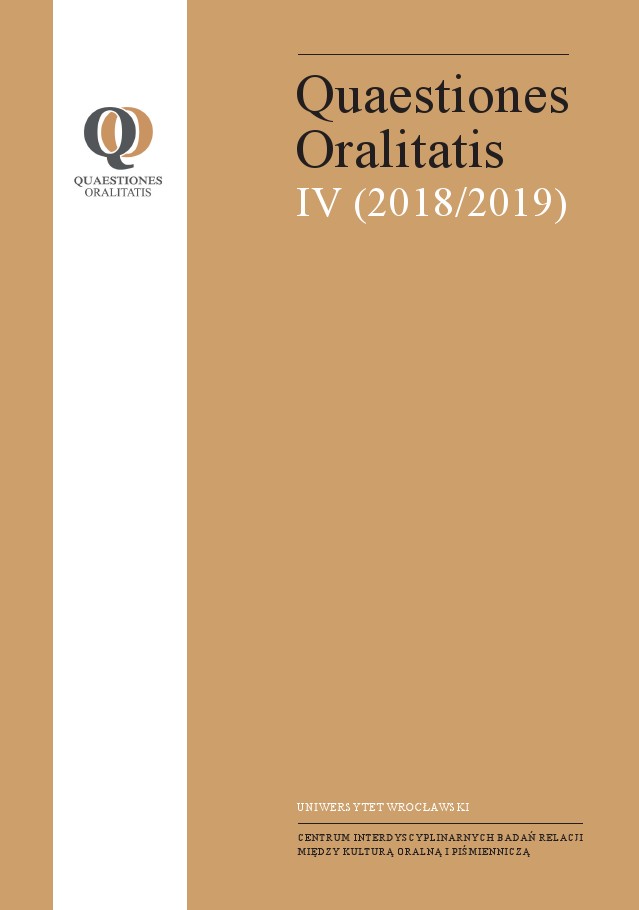ΘΥΜΌΣ IN HOMER: PHILOLOGICAL, ORAL-POETIC, AND COGNITIVE APPROACHES
ΘΥΜΌΣ IN HOMER: PHILOLOGICAL, ORAL-POETIC, AND COGNITIVE APPROACHES
Author(s): Douglas L. CairnsSubject(s): Language and Literature Studies
Published by: Centrum Interdyscyplinarnych Badań Relacji między Kulturą Oralną i Piśmienniczą, Uniwersytet Wrocławski
Keywords: Homer; orality; psychology; mind; deliberation; θυμός; conceptual metaphor; metonymy; cognitive humanities
Summary/Abstract: Thomas Jahn’s deft deployment of Parry’s oral-formulaic theory has shown that in a large number of occurrences, when used adverbially (with a preposition, in the instrumental dative, or in some other analogous use of an oblique case, e.g. ἐν(ὶ) θυμῷ, κατὰ θυμόν, θυμῷ, etc.), the usage of the words denoting the so-called “psychic organs” can be less a matter of semantic specificity than of metrical convenience, so that these terms exhibit substantial degrees of overlap and redundancy. Thus we need to treat the “psychic organs” as a family (of which θυμός is by far the most representative member) rather than as wholly independent variables. But careful philology can supplement this picture by demonstrating that even in non-formulaic and more marked contexts (e.g. when personified as agents or interlocutors) the relevant terms may be interchangeable in function. Once that has been established, approaches drawn from the cognitive sciences can help us pin down the ways in which the “psychic organs” can, via metonymy and metaphor, capture aspects of mental functioning in Homer without ever detracting from the agency of the person as a whole.
Journal: Quaestiones Oralitatis
- Issue Year: IV/2019
- Issue No: 1
- Page Range: 13-30
- Page Count: 18
- Language: English

